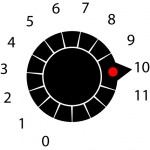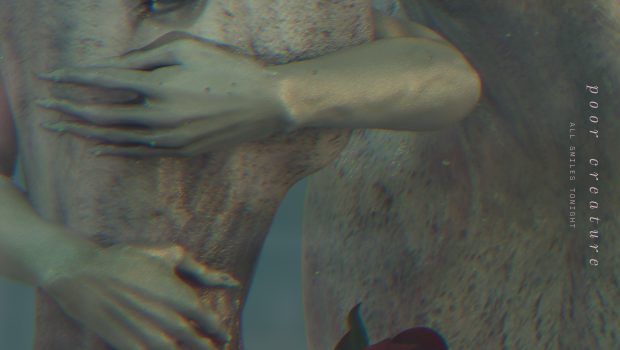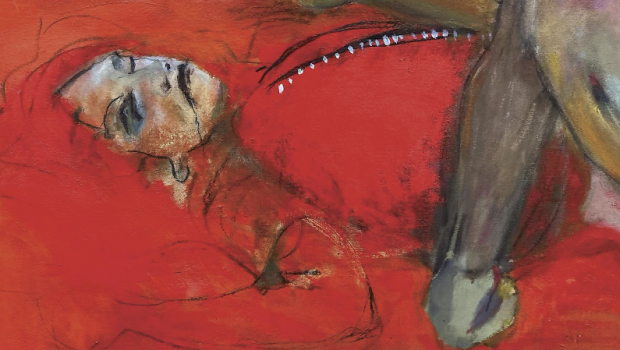 Noah’s voice is somewhere up in the ether. Opener ‘Sequential Circuits’ christens the album with a languorous sweep of the arm, the choral vocal so drenched in reverb that the edges blur. Noah Lennox (Panda Bear) harmonises with himself as sustained, echoing synth plays the same trick. The beat is a damp pulse, a squidgy rippling of waves which washes under everything above. This is how the album is birthed: it crawls out of the primordial ooze and begins its life cycle.
Noah’s voice is somewhere up in the ether. Opener ‘Sequential Circuits’ christens the album with a languorous sweep of the arm, the choral vocal so drenched in reverb that the edges blur. Noah Lennox (Panda Bear) harmonises with himself as sustained, echoing synth plays the same trick. The beat is a damp pulse, a squidgy rippling of waves which washes under everything above. This is how the album is birthed: it crawls out of the primordial ooze and begins its life cycle.
And it’s an album that very much feels birthed rather than developed. Tracks rarely arrive fully formed, but begin as an unsteady series of blips and whooshes which find their feet and coalesce into living, breathing music. The dance format, with its repeating strings of samples forms DNA which underpins everything, but it does nothing to constrain the breadth of sound Lennox conjures with.
The one constant is that soft-focus vocal. It has great transformative power, and lends analogue warmth to tracks which could otherwise be harsh and unforgiving. On ‘Crosswords’, Lennox croons like Barry Manilow, over the kind of beat Eric B was paid in full for. It’s a velveteen voice which makes this a great (synth) pop ballad, but fades away to leave nothing but acid house.
The drum programming throughout takes its lead from the ‘boom bap’ sound with which the likes of DJ Premier and Q-Tip made their name and it adds dynamism, a sharp point of tightly wound focus. It shows a deft touch, providing structure, and exerts a gravitational force around which the more amorphous elements can gather. It’s no coincidence that the album’s only misstep is on ‘Selfish Gene’, where the beat flirts in and out, but never quite takes hold resulting in a slightly flabby, directionless track.
Whilst ‘Sequential Circuits’ christens the album, lead single ‘Mr. Noah’ christens the artist himself. Again, the boom bap beat keeps gangly synth in check. It has an Escherian charm, a slurred groove which threatens to bubble over but spins drunkenly to somehow pull off a perfect pirouette. It’s the album’s first tottering step, and the second inkling as to the album’s meaning. The first was the album’s title, Panda Bear Meets The Grim Reaper, and it appears clear Lennox is plumbing the same depths as he did a decade ago on Young Prayer.
That was an acoustic album, written to cheer up his father who was dying of brain cancer. This album tackles the same matter of life, death and loss but with a broader brush. It documents Panda Bear’s encounter with the Reaper: the entirety of the journey taken with his father, his death, as well as a peephole into an imagined future which culminates with the death of Lennox himself.
The first side could be considered childhood and is characterised by a youthful naiveté. ‘Butcher Baker Candlestick Maker’ harks back to a childhood nursery rhyme, ‘Boys Latin’, a playful round sung with himself is named after a school in his native Baltimore. His christening on ‘Mr. Noah’ is nothing If not childishly exuberant. Lennox usually leans toward abstraction in his lyrics, but on ‘Crosswords’ the mood of the first side rings clear (Damn it so good/So good, it’s so good, so good/Get it day to day/Day after day/So good): content with a touch of wistful hindsight.
This ends with the haunting ‘Tropic of Cancer’, a reference to the disease which killed his father. It’s deeply cinematic; horns from last post (which could equally be the theme from 2001: A Space Odyssey) giving way to eddies evoking a barren landscape. Harp borrowed from The Nutcracker speaks of solace, an emotional outpost in the wasteland, striking the same secret chord as Jeff Buckley’s ‘Hallelujah’. Lennox is uncharacteristically literal with his lyrics again as his lilting voice sings, “It’s all in the family/And then you sneak it all away/when they said he’s ill/Laughed it off as if it’s no big deal/What a joke to joke, no joke”. The listener meets The Reaper here too, through use of a leitmotif: the air goes cold as he strikes minor keys and sings, “You can’t get back/You won’t come back”, and each note is laden with a significance which provides menace amongst the fragile beauty.
The next two tracks take their names from Shadow of the Colossus, a video game in which a lone hero (Wander) must travel the world and defeat great monsters, alone. ‘Shadow of the Colossus’ and ‘Lonely Wanderer’ represent Lennox feeling he must defeat his own monsters, and the obstacles life engenders, alone – the former is short chaos in the immediate aftermath of death, the latter sorrowful and piano led as he feels totally abandoned.
Which makes ‘Princepe Real’ (off kilter, glitch-disco a la Todd Terje) something of a surprise. Lennox either overcomes his obstacles, or seeks solace elsewhere. Maybe he finds love. Here we are in the realm of the unknown, and ‘Selfish Gene’ is his own theoretical diagnosis with the hereditary sickness whilst ‘Acid Wash’ leads the funerary procession in the same Celtic, hymnal manner the album began.
It gives Panda Bear Meets The Grim Reaper a bookended, cyclical feel, speaking of reincarnation and life after death. It imbues it with a heartbeat and makes it a beautiful paean to life and death, cut through with genuine significance. It’s so well considered that you feel every bleep and bloop is a metaphor for something just out of reach. Panda Bear is an artist at the peak of his powers with a story to tell and crucially it’s a relatable one. Like life it can be fun, it can be sad, it can be somewhere in between. It takes unusual detours and always subverts expectations. But in the end, it’s uplifting, triumphant, victorious. Panda Bear wants you to know: Life is for the living.
Release Date 12/01/2015 (Domino Records)
Panda Bear Official | Facebook | Twitter | Soundcloud


















